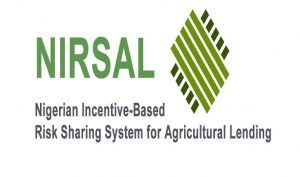
Aliyu Abdulhameed, managing director of NIRSAL, at a workshop for agriculture stakeholders in Abuja said the system known as the Secured Agricultural Commodity Transport Corridor (SAT-C) would help reduce multiple taxation and high cost of food prices.
At the workshop aimed at strategising to map out a transport system that would engender efficient and effective haulage of agricultural commodities to export terminals and consumer markets, Abdulhameed said SAT-C was made up of four components of secured commodity aggregation zones, dedicated commodity routes, specialised haulage services and agro-runners to facilitate movement of produce.
The managing director noted that the system when actualised would help reduce an estimated $8.9 billion worth of post-harvest losses in the country.
Audu Ogbeh, minister of agriculture and rural development, said the Federal Government would facilitate policies that would aid the successful implementation of SAT-C, for effective delivery of agricultural produce.
Ogbeh, represented by Muyiwa Azeez, director, agribusiness, processing and marketing in the ministry, said the government would provide an enabling environment to encourage the use of the available aggregation and crops processing centres for the initiative.
“We are supporting this initiative and cooperate with right policies,’’ he said.
Babajide Arowosafe, the executive director, technical at NIRSAL, said that an estimated N2.7 trillion worth of food was being lost due to inefficient supply chain.
Abdullahi Ringim, the deputy corps marshal of the Federal Road Safety Corps, commended NIRSAL for the initiative.
Ringim assured the corps would work with various stakeholders to ensure the easy transportation of agricultural produce to different states.








